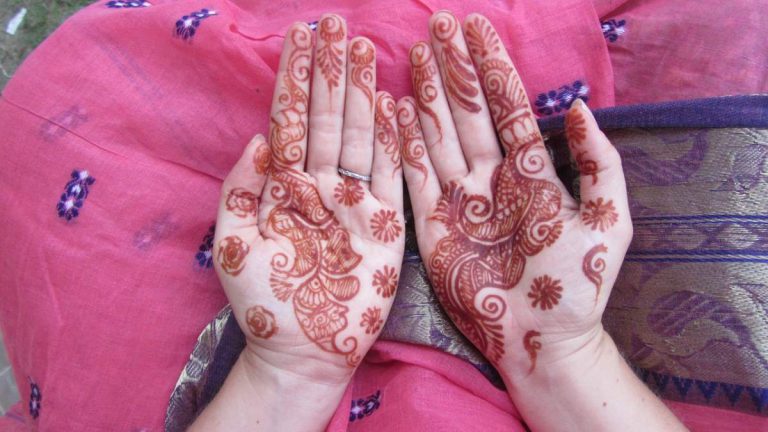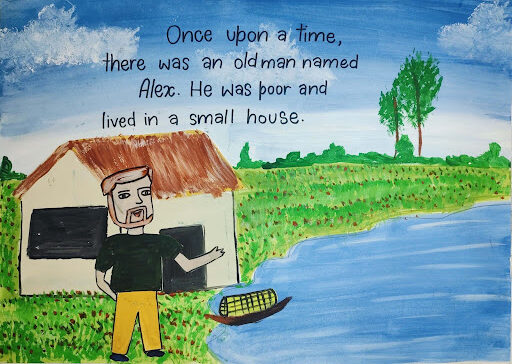India- Charm of pseudoscience and need for scientific thinking

Aparajita is currently doing her PhD in Visual Arts, Arts and Aesthetics at JNU. She is a trained archaeologist and has participated in exacavations at Rakhigarhi,Haryana and Odhisa. Her main area of interest is study of Ancient Indian history and culture.
“It’s just a matter of time, your stars are not favorable”, “Your lucky number is 5, your name does not add up to 3, which is your destiny number”. “Change your name, add an extra “A” to it and see how your life changes”. These are some of the most common expressions which we often come across in our daily lives. Every year people across the country are glued to the television, waiting to know how the stars are going to unfold this year. Every nook and corner of the city is populated with self-proclaimed Palmists, Numerologists, and Astrologers who claim to know everything about someone else’s future. These subjects are considered pseudoscientific, as their underlying claims cannot be supported by strong scientific evidence. It consists of statements, beliefs, or practices that the pseudoscientists claim to be both scientific and factual.
But, in reality, they are incompatible with the scientific method of inquiry. According to Karl Popper, the significant difference between the two is that while pseudoscience seeks confirmation, science is based on the principle of falsification. There is a large emphasis on conformation in pseudoscience, wherein they are always looking for someone to confirm their findings. Further, shortcomings attached to pseudoscience are that its claims are not open to being evaluated by experts, absence of systematic practices, and an over-reliance on confirmation bias.
Pseudoscience and Popular Culture
The common man is often lured by scamsters who promise an end to his worry. Various news channels, newspapers, magazines are often full of shows, write-ups, and ads on these issues. Vaastu Shastra is the “science of architecture”, wherein the entire house, office space is remodeled based on positions of each direction. While some directions are considered auspicious, most others are debunked as inauspicious and bad. Changing the design of the home, hanging a frame in a particular way on a wall, is considered to bring peace. This is humorous given the fact that all the eight directions have a guardian deity named ashtadikpalakas. Each of them is a lord of a particular direction, suggesting that each direction is holy and auspicious. However, astronomer Jayant Naralikar believes that Vastu shastra does not have any logical connection to the environment around us.
Similarly, misunderstanding persists in the case of astrology. The idea behind astrology is that stars and planets have a telling influence on human affairs. Horoscopes are a foretelling of a person’s life based on the relative positions of stars and planets. The alignment of stars at the time of our birth determines our destiny. A lot of people nowadays align the birth of their children around auspicious astrological timings.
A lot of Indians attach great value to astrological predictions basing their entire life decisions on it. This can be a reason for worry, as some may make rash decisions based on a horoscope reading. It is not uncommon in India to find highly educated people inclined towards astrology. Many educated people, studying sciences, going to reputed institutions abroad, pursuing Ph.D., politicians, bureaucrats believe in this discipline. Researchers have found no evidence connecting astronomy with human personalities.
While some disagree entirely with its claims, many are cautious in labeling it as a pseudoscience. They think of it as a way to be closer to the environment and nature. While one can have a distinct opinion, it is essential to look at it as advice and not wholly rely on it.
The request to switch off the light on 5th April at 9 PM for 9 minutes gave rise to a hoard of claims by numerologists based on some funny mathematical calculations. Many of them tried to prove that number 9 would somehow help us ease the COVID tension. The Press Bureau of India had to later release official statements urging people to not believe in such unscientific statements.
None of that happened, and as of today, the situation is worsening. The practitioners of numerology believe that numbers have a mystic power. The numerical value is hidden in a person’s date of birth, name, and so on reveals the connections of a person with a given planet, as well as the qualities and tendencies which the person may follow in his or her life. In the case of a name, each letter is assigned a value, the addition of these give us a final number which is connected to a person’s life, character, and job. Further, many check the astrological chart along with numerology. In most of the cases, minor suggestions are given. One is asked to either change his signature, wear a particular jewel, according to a recommendation or an auspicious number, letter, color is suggested.
But, most of these claims are far fetched as there is no proven study that shows that numbers have any magical powers. How can the right addition of the letters of your name help you determine success in life? Most of it is too generalized, all number 3s I know are not the same. In most of these cases, the numerologists stick to a western calendar and use only Roman scripts for names. In India, we have different calendars, and even the names are written invariant scripts. How are these changes corroborated in numerology?
Palmistry is a branch of study which uses the lines on a person’s hand to predict his future. Now, using hand impressions to trace a criminal is more of acceptable practice, but palmistry is mostly considered pseudoscience. The lines on our hand start forming in our womb from about 12 weeks. These are actually creases on our skin, which makes it easier to grab, hold other objects, they help as they do not let your hands bunch up when you flex your palms, providing more dexterity. Most people are born with three main creases on the palm; the variance in thickness is subjected to genes. That is why some people have a thick and dense network of lines, while some have scarcely placed lines. They use the person’s body language, age, clothing, hairstyle, manner of speech to say something about a person.
The information is then used to influence the person in front. On several occasions, the reader will ask for details and try to find a context for the discussion. There is a lack of consistency between different predictions. There is no substantial evidence to prove that whatever is claimed is right. It has been proved that the lines on our hands are continually evolving and are ever-changing. Mostly, people are told what they want to hear or what they fear.
Academics and Pseudoscience
Thpseudosciencece has been spreading its roots in society; they are no more limited to leisure and have a strong presence in academia too. A talk held in 2017 in Mumbai on “Vaimanika Shastra” claimed how the ancient Indian civilization had developed its plane. In recent years, we have witnessed many such claims. Lord Ganesha has often been described as the earliest example of plastic surgery in India. While many in India have claimed that the Darwinian theory of evolution is a lie.
The 2019 Indian Science Congress, made waves across the nation where speakers claimed that Issac Newton and Albert Einstein were wrong about physics. Some suggest that specific Indian texts contain plans of interplanetary aircraft, and cows carry bacteria that turn everything they consume to gold. There is a tendency among the right-wing people to use everything that is Indian in origin as a means to instill pride in ancient India. Further, the deep reach of the internet, availability of WhatsApp and other social media tools have created a rampant spread of misinformation.
Most of these claims are not backed by any scientific evidence and are based on traditional beliefs and ancestral knowledge. They are often used to mobilize people for political gains and to champion the cause of Hinduism.
The growing belief in these sciences is a cause of worry for academics, who think that the inclusion of such sciences within the school curriculum can be damaging. In 2019 a #SaveScience movement was launched by teachers, scholars, and students in the light of the unscientific statements which were constantly being put forth in multiple forums.
People have to be careful in using analogies for a particular concept. While it may not be wrong to draw parallels from history, claiming objectionable content can be a bit of a problem. Using examples of pushpak viman could be an interesting way to explain concepts to a novice, but claiming that Indians invented it would be fallacious. The weird explanations become a matter of embarrassment when they are made part of national discourse and become a part of academic circles.
Venki Ramakrishnan describes such claims as manifestations of the colonial inferiority complex. Such statements simply add to our ego, boost the pseudo-patriotism. This can have negative consequences in the long run. Such bizarre claims taint the authenticity of our ancient tradition. It belittles the contributions of excellent stalwarts who have contributed immensely to the sciences.
Further, it can have a damaging effect on the future generation, which should be taught about the contribution of Charak Samhita, Sushruta, and C.V. Raman. It is only through proper knowledge that such sort of claims can be refuted. It is essential that we instill values of logic, rationality in today’s generation.
Road Towards Rationality
Pseudosciences are a set of practices that are based on popular human beliefs. There is an intrinsic desire in man to know the unknown. We all want to know what kind of careers or jobs we will get. Who will we get married to? When will my child perform well in his study? We all require answers to such questions. Further, we need a quick solution to our problems.
If changing the direction of a frame can guarantee happiness, why put effort into changing habits. The ongoing pandemic, the lockdown have brought hardships to a large number of people. This has set in uncertainty in many people’s lives, and it’s precisely when the mind is uncertain that one turns to pseudoscience.
Most of us turn towards these, as we are unable to reach our families. We all want to be heard, something most of our families fail to provide for us. A reassurance, a boost from outside, just adds more strength to our dwindling spirit. Tarot cards, astrology, provide an instant source of gratification to our unsatisfied mind. It is only after much consideration that one would understand that choices govern a person’s life. We are what we choose to be and perceive to be. For the most part, any parent who has been an absent parent for their children cannot expect a miracle to cure the rebellious behavior of their child.
In India, the Federation of Indian Rationalist Associations was created as a body of rationalist, scientific organization. Through their work, they have time and again raised voices against these sciences. They have even conducted awareness programs among people. A commendable work is also being done by Andhashraddha Nirmulan Samiti (Committee for Eradication of Blind Faith), continually raising voices against such practices. They provide a logical discussion on a variety of these subjects, along with examples and case studies. The youth today should question these age-old practices. They should analyze such claims, test their authenticity, differentiate between science and pseudoscience, and accordingly accept or refute them.
The views expressed in this article are the author’s personal.
Featured Image Credits: Needpix








@Palmistry Palmist Palmistindian – Perhaps it’s your conservative outlook that is making you not to question things that have no scientific explanation. Come up with facts to support what you say, and then question the intention of the author. Well if it’s JNU that bothers you, see the latest rankings of Universities in India. Have a good conservative sleep, my friend!
Quiet a bias article without research. Anything Indian is demeaned degraded humiliated shamed. Can you answer why vastu shastra is so much prevalent in Singapore and Honk Kong. There maybe lots of fraudsters it is agreed.
But you have not read a single article on astrology, palmistry and vastu and you commenting on it.
It it science to criticise a subject without reading it.
Does JNU and the teachers teach you this.
You talk about Indian Rationalist Associations and Andhashraddha Nirmulan Samiti (Committee for Eradication of Blind Faith).
You are doing PHD do you have any of your own research to validate it’s wrong or you take other people whom you dont even know and copy paste.
You say “The youth today should question these age-old practices”, HAHAHAHA
You say “analyze such claims, test their authenticity,”” have you tested the authenticity , that you calling others to verify.
My god you also talk about LORD GANESHA what can be said about your thinking.
You talk about the Darwinian theory without knowing your own BHAGWAT GITA.
A terrible article